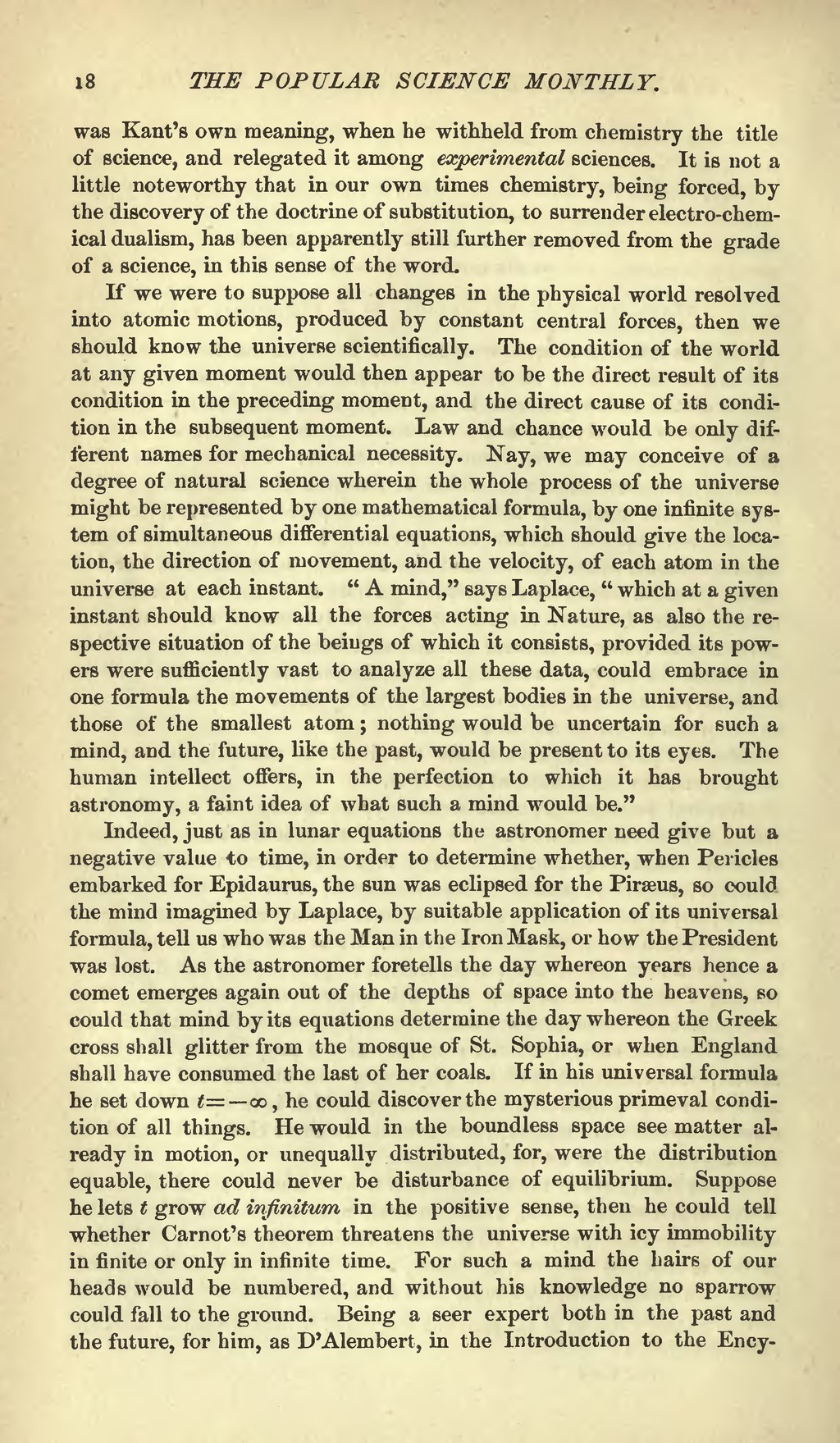was Kant's own meaning, when he withheld from chemistry the title of science, and relegated it among experimental sciences. It is not a little noteworthy that in our own times chemistry, being forced, by the discovery of the doctrine of substitution, to surrender electro-chemical dualism, has been apparently still further removed from the grade of a science, in this sense of the word.
If we were to suppose all changes in the physical world resolved into atomic motions, produced by constant central forces, then we should know the universe scientifically. The condition of the world at any given moment would then appear to be the direct result of its condition in the preceding moment, and the direct cause of its condition in the subsequent moment. Law and chance would be only different names for mechanical necessity. Nay, we may conceive of a degree of natural science wherein the whole process of the universe might be represented by one mathematical formula, by one infinite system of simultaneous differential equations, which should give the location, the direction of movement, and the velocity, of each atom in the universe at each instant. "A mind," says Laplace, "which at a given instant should know all the forces acting in Nature, as also the respective situation of the beings of which it consists, provided its powers were sufficiently vast to analyze all these data, could embrace in one formula the movements of the largest bodies in the universe, and those of the smallest atom; nothing would be uncertain for such a mind, and the future, like the past, would be present to its eyes. The human intellect offers, in the perfection to which it has brought astronomy, a faint idea of what such a mind would be."
Indeed, just as in lunar equations the astronomer need give but a negative value to time, in order to determine whether, when Pericles embarked for Epidaurus, the sun was eclipsed for the Piræus, so could the mind imagined by Laplace, by suitable application of its universal formula, tell us who was the Man in the Iron Mask, or how the President was lost. As the astronomer foretells the day whereon years hence a comet emerges again out of the depths of space into the heavens, so could that mind by its equations determine the day whereon the Greek cross shall glitter from the mosque of St. Sophia, or when England shall have consumed the last of her coals. If in his universal formula he set down t–∞, he could discover the mysterious primeval condition of all things. He would in the boundless space see matter already in motion, or unequally distributed, for, were the distribution equable, there could never be disturbance of equilibrium. Suppose he lets t grow ad infinitum in the positive sense, then he could tell whether Carnot's theorem threatens the universe with icy immobility in finite or only in infinite time. For such a mind the hairs of our heads would be numbered, and without his knowledge no sparrow could fall to the ground. Being a seer expert both in the past and the future, for him, as D'Alembert, in the Introduction to the Ency-

